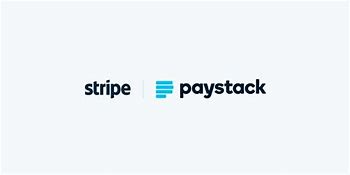Stripe buys Nigerian-based Paystack for $200M to expand its services into the Nigerian market
- Posted on October 16, 2020
- Technology
- By Glory

Stripes bought Paystack in an all-cash deal for $200 million. The deal will allow Stripes to expand its business in Africa and it will also allow stripes to be able to compete with other payment processing companies like Square, Paypal, etc.
Earlier this year, Stripe announced that it had raised
another $600 million in funding. Part of its reasons for the funding was to expand
its API-based payment services into other countries, according to Stripe.
Stripe is in talks with Paystack, a startup in Lagos,
Nigeria that also provides API-based payment services. The fintech firm
currently has about 60,000 customers including small businesses, educational institutions,
large corporations, etc.
The two companies have said that the plan is to allow Paystack to remain operating independently. Although terms of the deal are yet to be
disclosed, sources familiar with the matter say the deal is worth over $200
million. If the deal is successful, the Stripe/Paystack acquisition will become
the biggest acquisition in Nigeria.
“Paystack was not for sale when Stripe approached us,”
said co-founder Akinlade. “For us, it’s about the mission. I’m driven by the
mission to accelerate payments on the continent, and I am convinced that Stripe
will help us get there faster. It is a very natural move.”
Prior to the time of making the acquisition move,
Paystack had been on Stripe’s radar for some time. In 2018, Stripe led a
funding round for Paystack raising $8 million, with other investors such as
Tencent and Visa.
This acquisition deal will also help Stripe expand its
global reach, rather than only acquire multiple small companies. In the last 18
months, Stripe has added 17 new countries to its platform list. The company has
also had a progressive expansion, as it relentlessly doubles its geographic reach
and grows its business. The company is now valued at $36 billion and has
become a potential IPO candidate.
Stripe’s CEO Patrick Collison told TechCrunch that
there are emerging markets in Africa which presents an “enormous opportunity”
for Stripe.
“In absolute numbers, Africa may be smaller right now
than other regions, but online commerce will grow about 30% every year. And
even with wider global declines, online shoppers are growing twice as fast.
Stripe thinks on a longer time horizon than others because we are an
infrastructure company. We are thinking of what the world will look like in
2040-2050,” said Collison.
The Stripe CEO also said that the move to acquire
Paystack after investing in it was a big one. He further said people shouldn’t
interpret the move in terms of Stripe’s bigger acquisition policy, as investing
in startups does not mean the company is trying to “tie them up with
complicated strategic investments”, according to Collison. “We try to
understand the broader ecosystem, and keep our eyes pointed outwards and see
where we can help.”
Stripe also has plans to acquire other regional companies
to expand its reach. The company isn’t only particular about the geographic
location but about how well startup founders have built their companies.
“A lot of companies have been, let’s say heavily
influenced by Stripe. But with Paystack, clearly, they’ve put a lot of original
thinking on how to do things better,” Collison said. “There are some details
for Stripe that we consider mistakes, but we can see that Paystack gets it, it’s
clear from the site and from the product sensibilities, and that has nothing to
do with them being in Africa or African.”
Paystack sold for $200 million but we think that the company is worth more than that. Africa is a big market and Stripes got away with a good deal on this one.


Be the first to comment!
You must login to comment